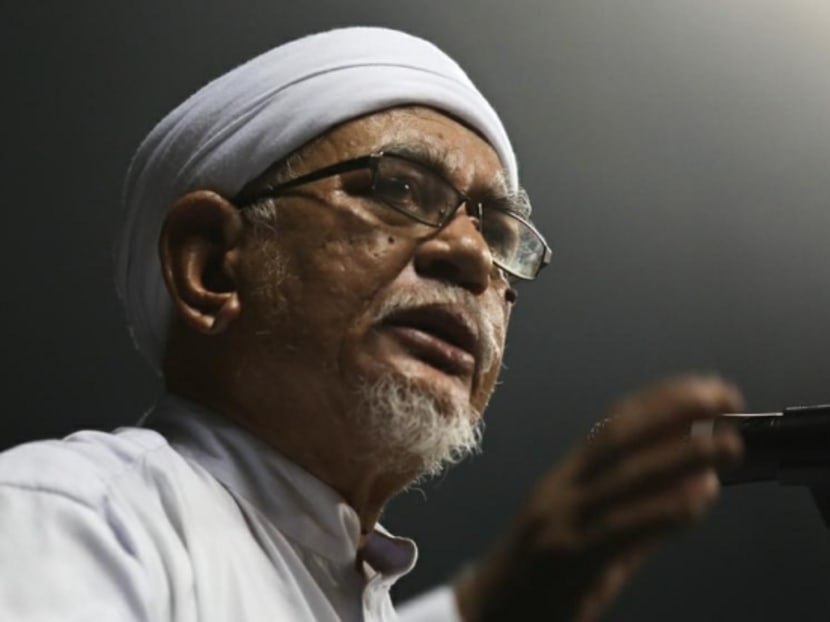BN component parties ‘unaware’ of consensus over hudud Bill
KUALA LUMPUR — Contradicting claims by ruling Barisan Nasional (BN) coalition’s secretary-general that all component parties have come to a consensus over a controversial Bill tabled by opposition Parti Islam Se-Malaysia (PAS) to strengthen Syariah Courts in Kelantan, several component party leaders told the media that they are in the dark over the issue.

Mr Hadi’s Private Members Bill is set to be debated in the upcoming Parliament session this month. Malay Mail Online file photo
KUALA LUMPUR — Contradicting claims by ruling Barisan Nasional (BN) coalition’s secretary-general that all component parties have come to a consensus over a controversial Bill tabled by opposition Parti Islam Se-Malaysia (PAS) to strengthen Syariah Courts in Kelantan, several component party leaders told the media that they are in the dark over the issue.
BN secretary-general Tengku Adnan Mansor’s had earlier insisted that all 13 BN component parties were part of the consensus, but at least two parties told Malay Mail Online over the weekend that they were caught unaware, adding that they would continue to staunchly oppose the PAS proposal, believed by some to be a precursor to implementing the Islamic penal code in the eastern state. The Bill is up for parliamentary debate later this month.
“I wasn’t informed about any decision but as far as I’m concerned, MCA will not agree on Hadi’s private member’s Bill,” Malaysian Chinese Association (MCA) youth chief Chong Sin Woon told Malay Mail Online late Saturday (Oct 1), referring to PAS president Abdul Hadi Awang.
Mr Chong noted BN chairman and Prime Minister Najib Razak had made it clear any decision made would be one that is agreeable by all parties.
“PM already said, whatever decision made, it must be based on BN consensus.”
Sarawak United People’s Party (SUPP) president Sim Kui Hian said he would seek clarification from BN if a consensus has indeed been reached.
“We want to find out what he (Mr Tengku Adnan) means by reaching consensus because at the last BN supreme council meeting, we made known our intention to oppose the Bill,” he told Malay Mail Online.
Earlier on Saturday, Mr Tengku Adnan said there was consensus regarding the Bill, but declined to reveal what the consensus was. PAS has been pushing to implement hudud law in Kelantan. Punishment under hudud law includes the cutting off of one’s hands for theft, as well as stoning to death for extramarital sex.
Mr Hadi first attempted to table the Bill, which seeks to amend the Syariah Courts (Criminal Jurisdiction) Act 1965 — also commonly known as the “hudud Bill” — last year, but the move resulted in the dissolving of the Pakatan Rakyat opposition pact after a public spat between PAS and the Democratic Action Party (DAP), with the latter insisting that hudud was not part of a common policy framework adopted by the opposition parties.
Mr Hadi attempted to do so again in May, when a minister from the ruling United Malays National Organisation (Umno) put forward a motion to expedite the tabling of the Bill. Umno’s role in fast-tracking the Bill, which Mr Hadi later deferred to this month’s parliamentary meeting in order to give Members of Parliament more time to prepare for a debate on the issue, sparked a backlash from the BN’s non-Muslim partners, whose leaders said they would quit the Cabinet if the proposed amendments are passed.
To assuage non-Muslims’ fears over the Bill, PAS has highlighted that it would not have any effect on them.
Dr Sim, who is also the Sarawak local government minister, stressed that the stand of the four State BN component parties, including SUPP, to oppose the Bill remains.
“We have not changed our stand on the Bill,” he said, adding that if the Bill is approved by Parliament, it would eventually turn Malaysia away from secularism, a tenet of the federation.
“Our forefathers, when they negotiated to form the Federation of Malaysia with leaders from Malaya, Sabah, Singapore and the United Kingdom in 1963, had made it very clear that Malaysia must not be an Islamic state ... They would not have agreed to form Malaysia if it was to be an Islamic state.” AGENCIES






